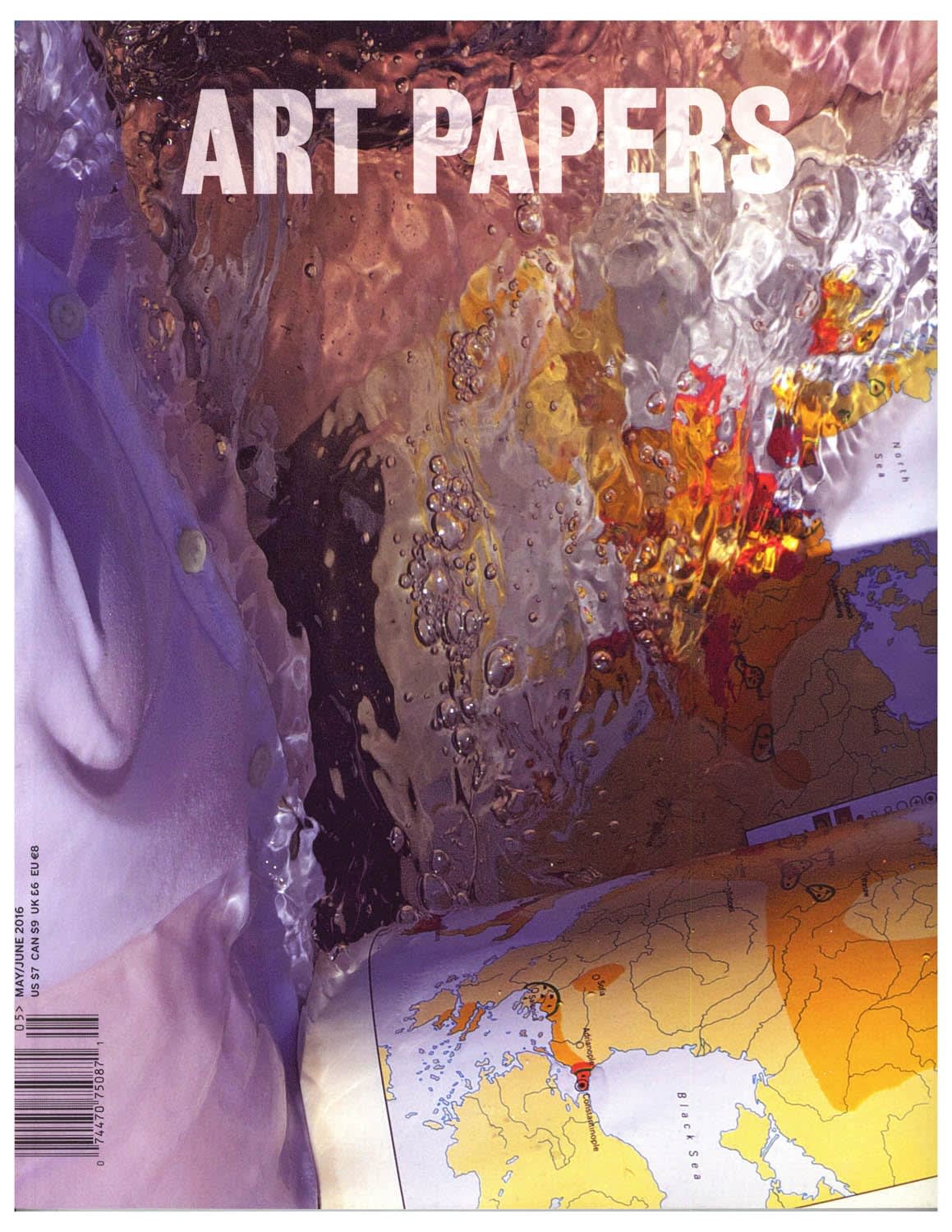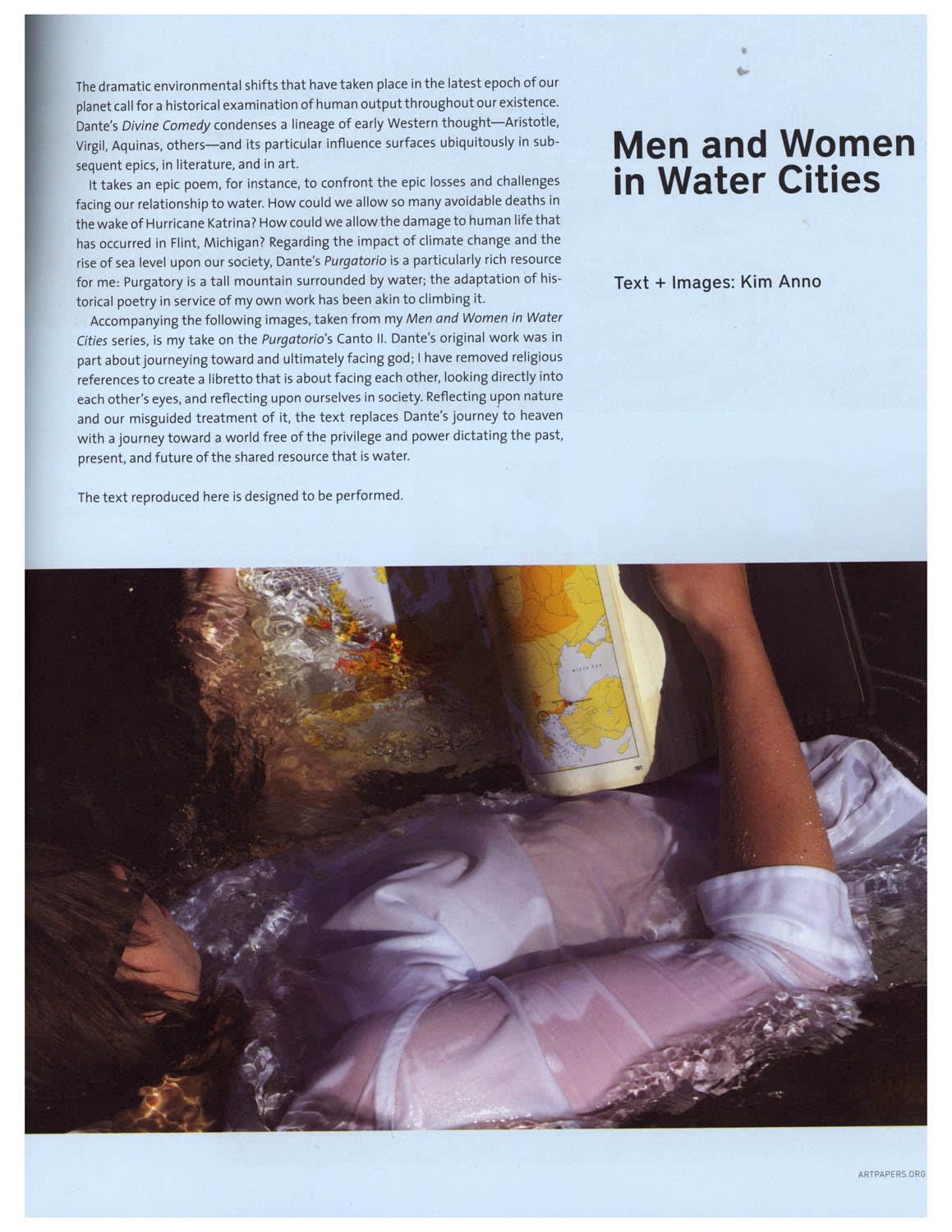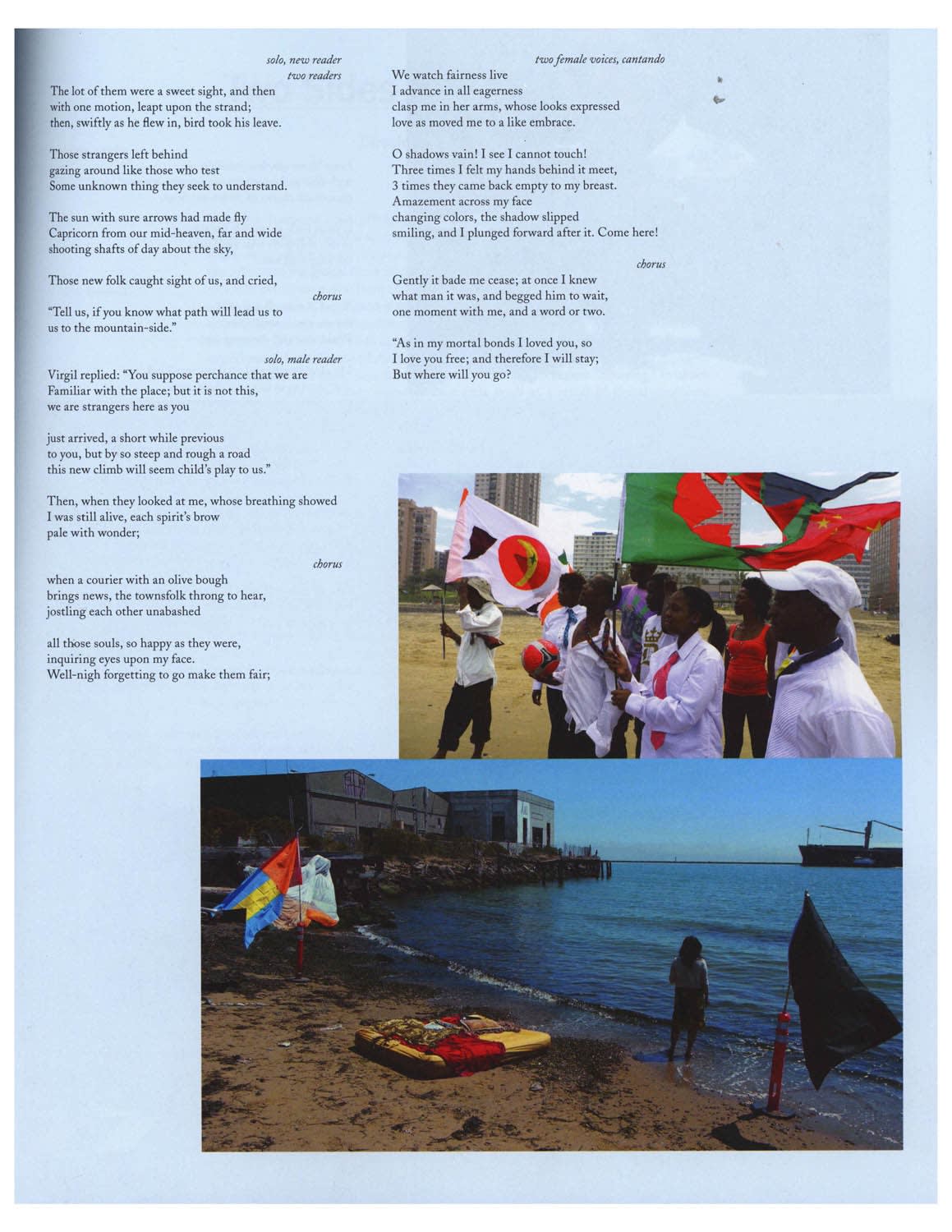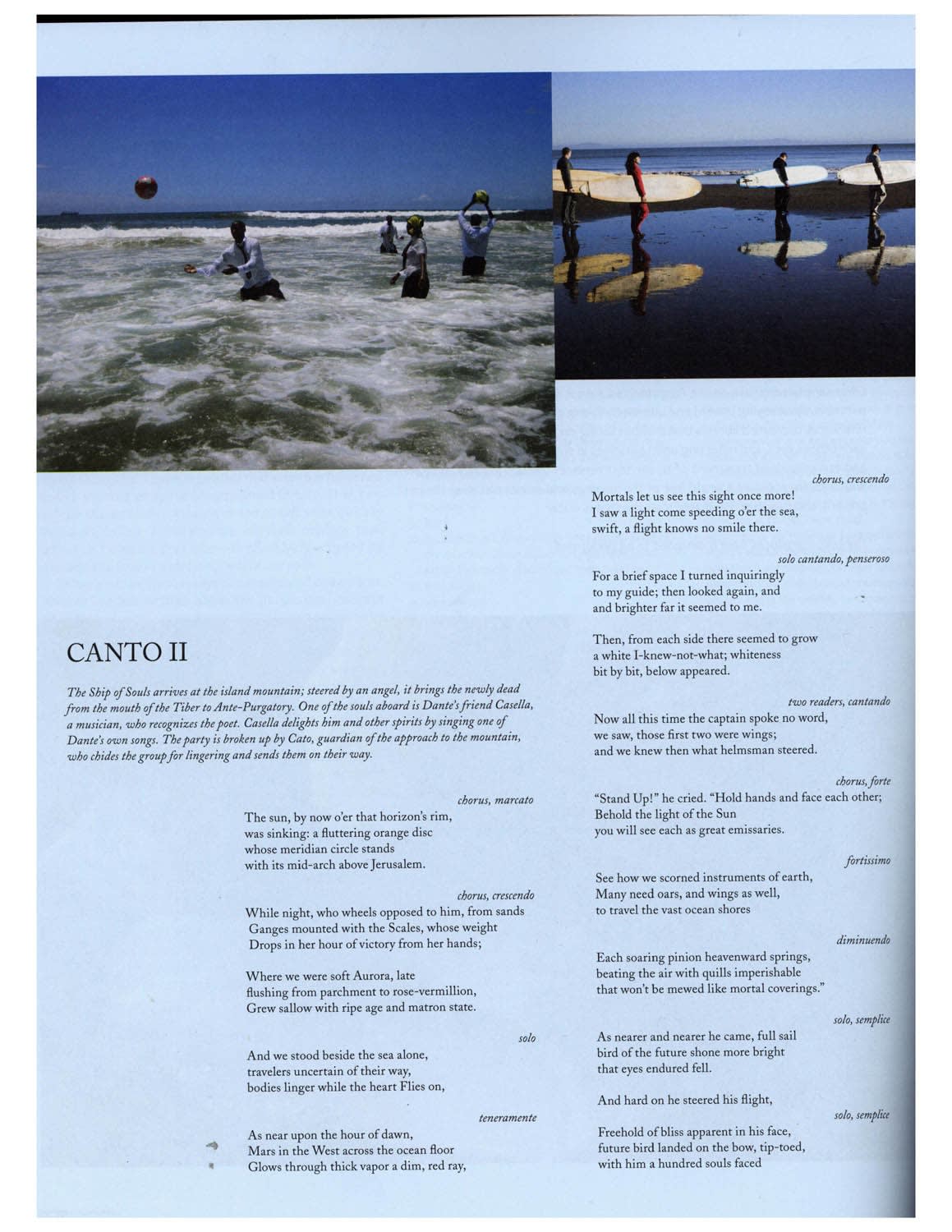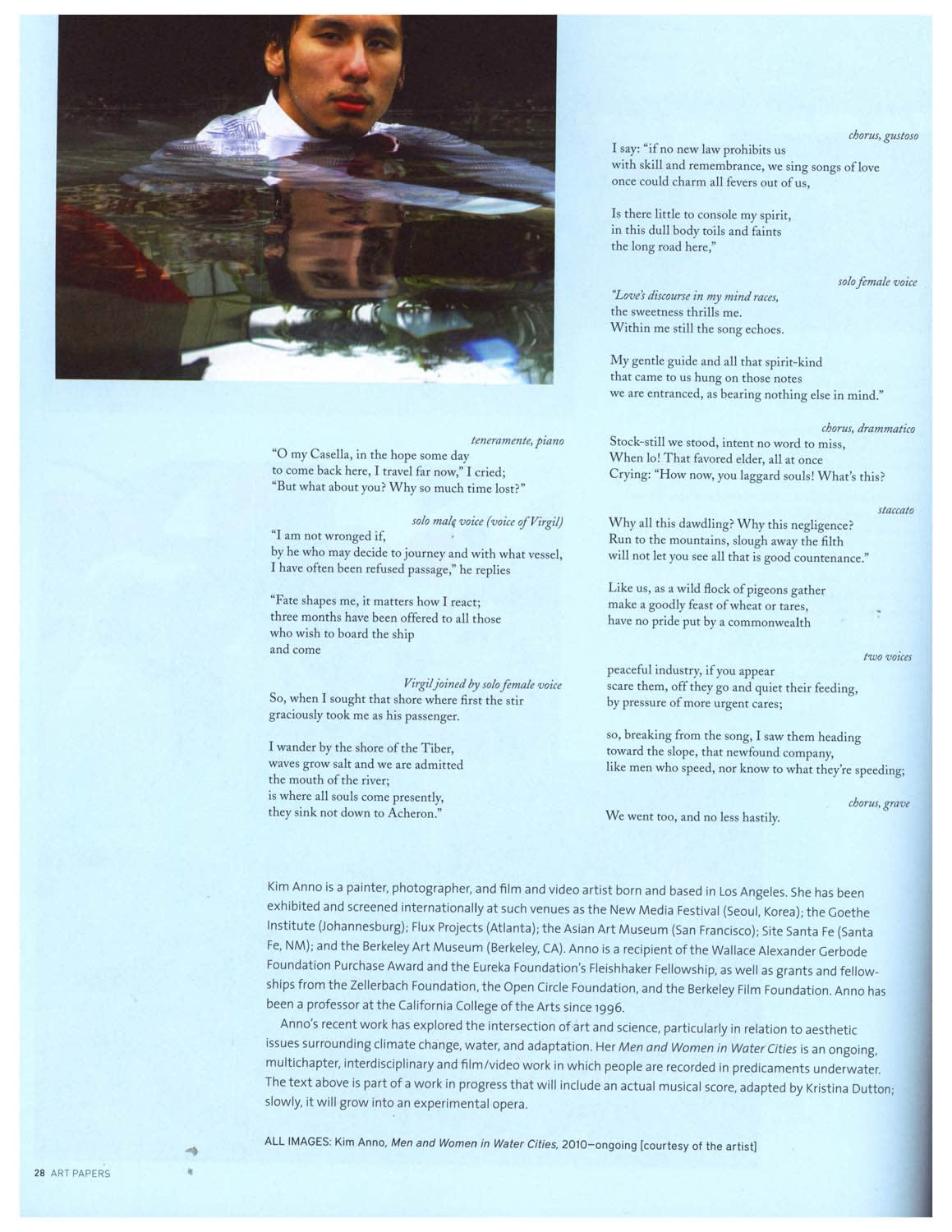Men and Women in Water Cities
The dramatic environmental shifts that have taken place in the latest epoch of our planet call for a historical examination of human output throughout our existence. Dante’s Divine Comedy condenses a lineage of early Western thought— Aristotle, Virgil, Aquinas, others—and its particular influence surfaces ubiquitously in subsequent epics, in literature, and in art.
It takes an epic poem, for instance, to confront the epic losses and challenges facing our relationship to water. How could we allow so many avoidable deaths in the wake of Hurricane Katrina? How could we allow the damage to human life that has occurred in Flint, Michigan? Regarding the impact of climate change and the rise of sea level upon our society, Dante’s Purgatorio is a particularly rich resource for me: Purgatory is a tall mountain surrounded by water; the adaptation of historical poetry in service of my own work has been akin to climbing it.
Accompanying the following images, taken rom my Men and Women in Water Cities series, is my taken on the Purgatorio’s Canto II. Dante’s original work was in part about journeying toward and ultimately facing god; I have removed religious references to create a libretto that is about facing each other, looking directly in each other’s eyes, and reflecting upon ourselves in society. Reflecting upon nature and our misguided treatment of it, the text replaces Dante’s journey to heaven with a journey toward a world free of the privilege and power dictating the past, present, and future of the shared resource that is water.
The text reproduced here is designed to be performed.
